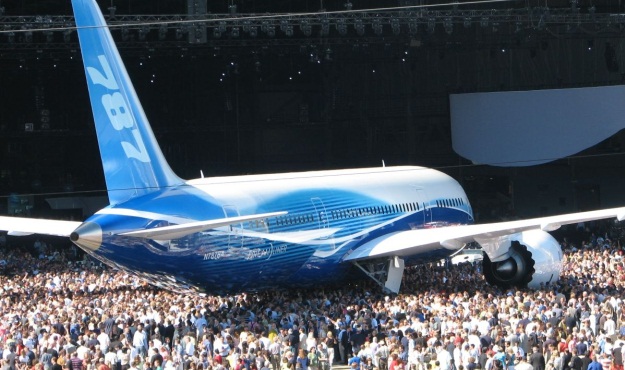
Washington/North Charleston, April 28: The first of four Boeing 787 Dreamliner aircraft for Air India to be assembled in South Carolina, a state governed by Indian American Nikki Haley, has rolled out of final assembly with great fanfare.
Haley and US Representative Lindsey Graham joined a crowd of nearly 7,000 Boeing employees and guests at the festive rollout ceremony in North Charleston Friday featuring aerial displays, music and entertainment.
The airplane next goes to the flight line, where it will go through systems checks and engine runs in advance of taxi testing and first flight. The airplane remains on schedule for delivery to Air India in mid-2012.
"We'll celebrate today, and tomorrow we begin the process of getting the airplane ready for delivery to our Air India customer," said Jack Jones, Boeing South Carolina vice president and general manager.
The aircraft for Air India is the first completed at the $750 million plant that opened last year.
Jones said sale of the first four of the South Carolina aircraft to Air India has nothing to do with Haley, who was born Nikki Nimrata Randhawa to Sikh immigrant parents from India. "That was just the way it worked out."
"This is a proud moment for Boeing as we roll out an airplane from our third final assembly site," said Jim Albaugh, president and chief executive officer, Commercial Airplanes.
By the end of 2013, the plant should be producing about three-and-a-half of the speedy, light aircraft made half of composite material of carbon fibre-reinforced plastic.
"It's the fastest-selling plane going into production that Boeing has ever had," Jones said noting the company already has 854 orders from 59 customers.






Comments
Add new comment